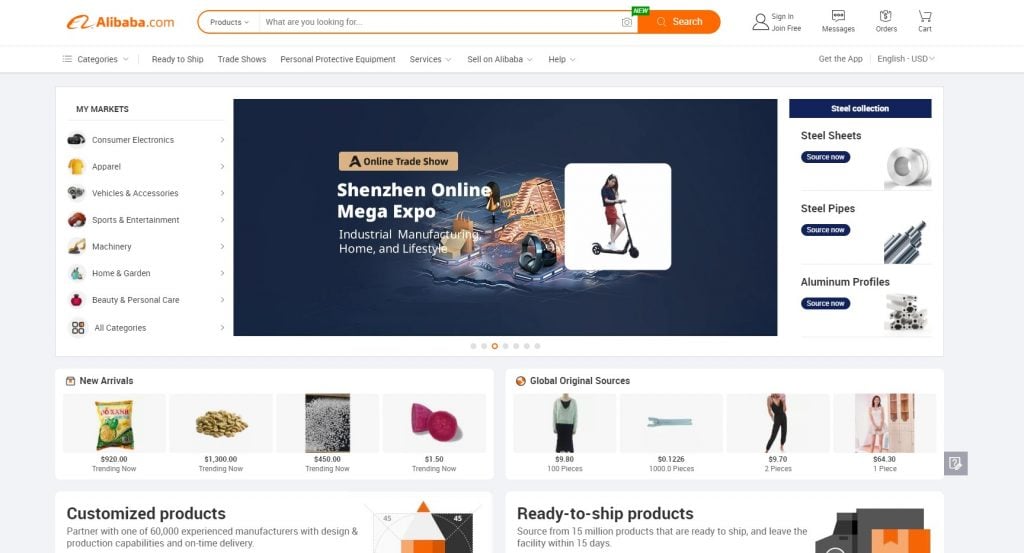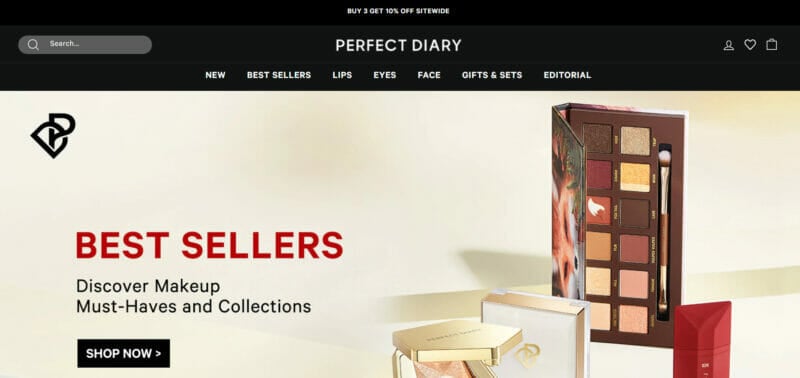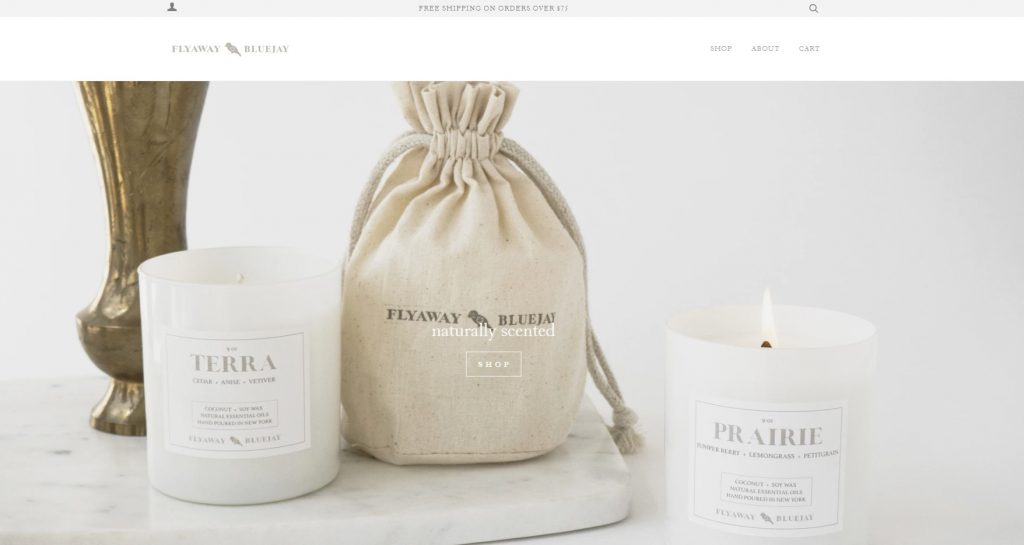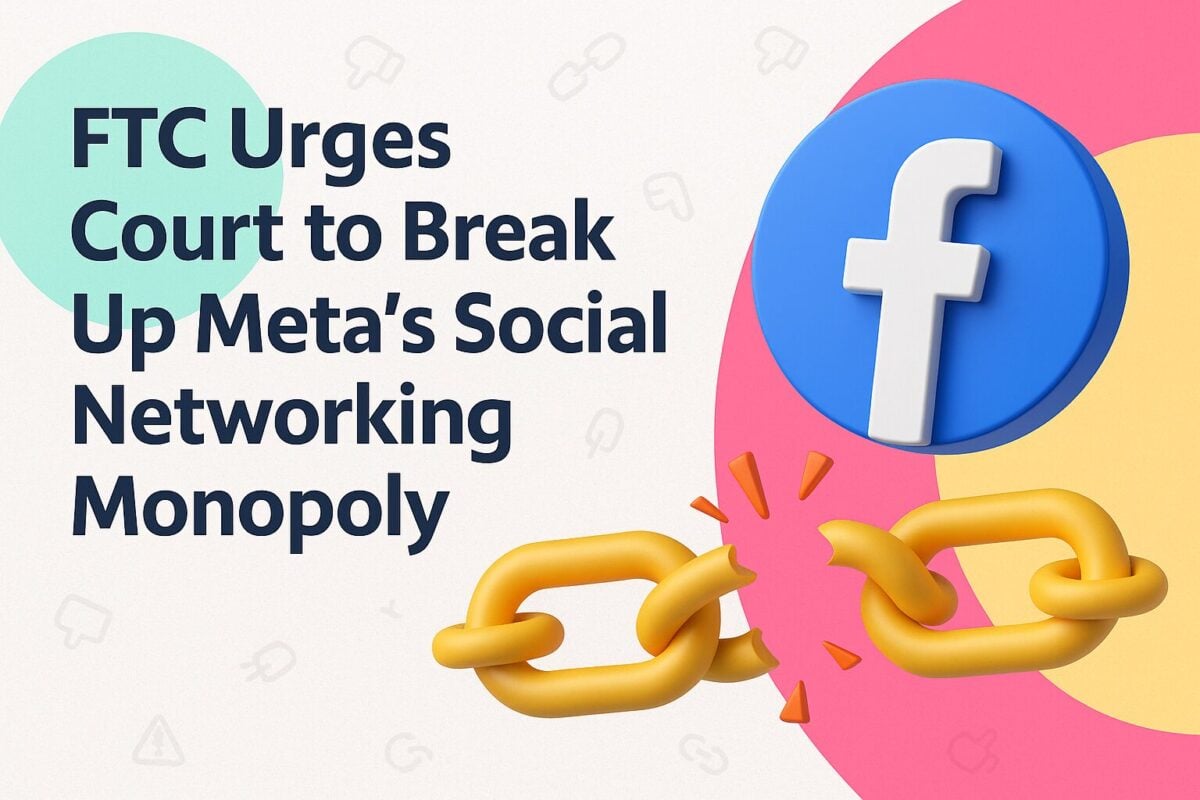Social commerce was probably always going to a significant force. Its popularity has gradually been increasing over the last few years. However, history will show that the Coronavirus of 2020 had a major impact, speeding up social commerce's popularity and usage.
As with most types of inbound marketing, firms have begun to develop tools and platforms to make social commerce easier for both buyers and sellers. These provide solutions to brands looking for ways to make social promotions and sell through social media. The social commerce platforms also make the social shopping experience more user-friendly and palatable for consumers.
Top Social Commerce Platforms:
- 1. Creator.co
- 2. CommentSold
- 3. Videeo
- 4. Grip
- 5. impact.com
- 6. Instagram
- 7. Facebook
- 8. Pinterest
- 9. Snapchat
- 10. TikTok
- 11. WeChat
- 12. Verint
- 13. Tagshop.ai
- 14. Pinduoduo
- 15. Beidian
- 16. Amazon Live
- 1. Pinduoduo
- 2. Yunji
- 3. Meituan
- 4. Alibaba
- 5. Perfect Diary
- 6. Avon
- 7. New Balance
- 8. FlyAway BlueJay
- Frequently Asked Questions
What are the Benefits of Social Commerce?
There are quite a few benefits for firms engaging in social commerce. For a start, social commerce provides a ready-made audience for brands wanting consistent audience growth. Each day, new users join Facebook, Instagram, TikTok, and other social networks. Each new user becomes a potential new customer for brands engaging in social commerce. Sure, to be valuable, the "clients" need to be relevant to the firm – new teenagers joining TikTok are hardly likely to benefit sellers of stairlifts, for instance – however, brands are still likely to encounter potential new clients every day.
Brand engagement on social media is proven to help search rankings too. Even if you sell directly within a social site, some of these people will follow through to your website to look at your products and other items you stock. Google will take note of this additional traffic and is likely to adjust its search rankings accordingly.
Social commerce encourages communication with potential customers. Social media is two-way, so you have the opportunity for feedback from your customers. Social media word of mouth can also increase your contact with new people. Social commerce helps you build new relationships with people that you can continue to cultivate and improve over time. Happy customers are likely to make further purchases.
What is a Social Commerce Platform?
Unlike most of the other platform types we cover, there is no consistent definition of what a social platform is and what kind of services it offers. Probably the best way to look at a social platform is being a tool that enables social commerce to occur. While we include some of the leading social networks in this list, they aren't social commerce platforms in their entirety. Instead, they now incorporate social commerce elements that allow social selling to occur, often without people having to leave their app. Some have effectively become self-contained marketplaces.
Of course, social commerce is more than just buying and selling. It encapsulates the entire sales process – from research through to after-sales service. That means it includes activities such as brands communicating with customers via Facebook Messenger as much as it does enable the use of Buy Now buttons directly on sales posts.
You might notice the absence of Twitter from this list, which is somewhat ironic because it was the first major social network to trial social commerce capabilities. Between 2014 and 2017, Twitter let some brands add a Buy button to their posts, allowing direct selling from tweets. However, in 2017 Twitter decided social commerce wasn't for them, and they moved away from the idea. Perhaps they were just too ahead of their time.
Social Commerce on Social Media
Creator.co is a collaboration and community hub that SMEs can use to create, manage, and monitor their influencer marketing initiatives. The platform connects clients to a strong database that contains millions of influencers. Creator.co focuses on social commerce and uses advanced data and analytics, high-level reporting, continuous assistance on campaigns, and more. Its soon-to-come Marketplace+ will facilitate social commerce by enabling brands to sell their products and services across various social media platforms through creators, influencers, and publishers. Key Features: Search/Discovery, Automated Recruiting, Influencer Relationship Management, Influencer Marketplace, Content Review, Content Library, Campaign Management, Campaign Reporting, Influencer Analysis, Audience Analysis, E-commerce Tools, Product/Gifting Tools, Fake Follower/Fraud Detection, Payment Processing, Social Listening, Competitor Research, Creator Marketplace, Channels: Instagram, YouTube, TikTok To date, CommentSold has helped online sellers to sell more than 130 million items. Trusted by thousands of active merchants, it integrates with leading social media channels like TikTok, Facebook, and Instagram. In short, it lets you sell directly to your potential buyers via Facebook newsfeeds, your Facebook page, shoppable Facebook Watch Parties, Instagram Stories, etc. What makes it such a powerful tool is that it also lets you embrace live shopping. This means that you can take your social commerce to a whole new level by combining social commerce with live selling. In addition to letting you share your live shopping broadcasts via social sites, you can also use your own branded mobile app or customized web store to distribute these broadcasts. In fact, you can host your live sales on all three of these channels — your branded app, web store, and social accounts — at the same time Videeo revolutionizes online shopping by blending the personal touch of in-store experiences with the convenience of eCommerce, particularly for Shopify users. By offering live demonstrations that highlight product details and provide personalized recommendations, Videeo™ boosts customer confidence and purchase likelihood. Its innovative approach ensures customers receive focused attention, mimicking a one-on-one in-store experience in a virtual setting, thus appealing to a broad audience, including the digitally native Gen Z and millennials. The platform transcends traditional online shopping by encouraging direct interactions between your brands and customers, fostering a sense of community and loyalty. Videeo’s mobile app integration enhances user engagement through live shows, shoppable videos, and timely in-app notifications, promoting repeat purchases and sustained interest. Videeo converts casual visitors into devoted fans, a strategy that drives significant sales growth, making Videeo a notable social commerce platform. Grip, a South Korean social commerce platform founded in 2018, has been an industry disruptor since its expansion to the US in 2022. Grip’s accessible, real-time platform enables sellers worldwide to connect with buyers. Direct communication between creators and buyers fosters transparency and insight into products. The live shopping experience combines entertainment with exclusive deals, allowing users to purchase items instantly. The platform also offers a community of trusted creators, known as “Grippers,” who share their genuine experiences and insights with users. These influencers help build trust and reliability within the community, further solidifying Grip’s reputation as a go-to social commerce destination. Grip’s live shopping experience combines entertainment with exclusive deals. As users watch the live events unfold, they can take advantage of special offers and purchase items on the spot. This seamless integration of shopping and entertainment has resonated with users, contributing to Grip’s rapid rise in popularity. Impact.com supports shoppable content and provides integration with additional marketing analytics and e-commerce-related software to offer a comprehensive view of customer journey analytics. With its shoppable content capability, impact.com offers businesses an opportunity to showcase their products and services in a visually engaging and interactive manner. The platform integrates with social media channels like Instagram and Pinterest, allowing businesses to tag products in posts and make them shoppable. The integration with Pinterest is particularly noteworthy as Pinterest’s visual discovery engine is ideal for social commerce, and 80% of Pinners starting with visual search when shopping. Impact.com integrates with Pinterest’s shoppable Product Pins, allowing businesses to make their products discoverable to Pinterest users. The platform also supports Shop the Look ads, which enable traders to feature multiple products in a single ad, and users can click through to the retailer’s site to check out. Impact.com also provides integration with additional marketing analytics and e-commerce-related software, providing businesses with a comprehensive view of customer journey analytics. This feature makes it easy for businesses to track the effectiveness of their social commerce campaigns and make data-driven decisions to optimize their results. Key Features: Influencer Content Amplification, Search/Discovery, Automated Recruiting, Influencer Relationship Management, Influencer Marketplace, Team Collaboration Tools, Content Review, Content Library, Campaign Management, Campaign Reporting, Influencer Analysis, E-commerce Tools, Product/Gifting Tools, Forms and Compliance, Payment Processing, Nowadays, the primary way that Instagram acts as a social commerce platform is with its “Shoppable Posts” feature. Instagram has always had an advantage over many of its social competitors because of its inherently visual nature. It has always been the ideal social platform to display products, particularly if you make an effort to make your images enticing. It is the perfect medium for visual storytelling. Initially, Instagram didn’t allow for pure social commerce. When somebody clicked on one of your Shoppable Posts, they followed a link to the appropriate page on your online store, rather than making the sale entirely on Instagram itself. However, Instagram has since upgraded the capabilities of Shoppable Posts, and they now include an in-app checkout feature, so the customer never has to leave Instagram to make their purchase. Facebook is building a collection of social commerce tools to help brands. It now lets many US businesses use Instagram’s in-app checkout so that customers can experience the entire buying process within their Facebook app. With Facebook Shops, merchants can create a customizable store from which consumers can shop within Facebook and Instagram. Facebook Shops have dedicated places on the platform for consumers to browse and make purchases. Facebook Shops have a messaging button so consumers can communicate with sellers through Instagram, Facebook Messenger, and WhatsApp. Facebook also encourages brands to livestream and is looking at allowing consumers to purchase directly from a livestream. Like Instagram, Pinterest focuses on creative things. Their visual discovery engine is ideal for social commerce. They feature a visual search engine, Lens, that works with shoppable Product Pins. These find items, based on users’ photos, that Pinterest thinks might interest the user. Pinterest makes suggestions to users of shoppable products, with a direct link to a retailer’s checkout. Research shows that 80% of Pinners start with visual search when shopping, compared to 58% of non-Pinners. Pinterest also offers Shop the Look ads that allow traders to feature multiple products in a single ad. Pinners can discover great products related to a Pin’s image and click to check out on the retailer’s site. Sellers can tag up to 25 items in a photo. Although Snapchat hasn’t particularly focused on social commerce in the past, they have encouraged augmented reality (AR) that has interesting social commerce possibilities. Snapchat calls its AR lenses. Users can take selfies using a lens that helps them digitally try on makeup and sunglasses. Indeed, they can now virtually try on any type of clothing. Snapchat reports that more than 170 million users engage with AR on the platform daily. At this stage, while you can try on products within Snapchat, using its AR lenses, you still need to click outside Snapchat to make the purchase, however. It is relatively early for TikTok involvement with social commerce, but the video-sharing platform has been making trials in this area. It has already established a global partnership with Shopify. Shopify merchants can create, run, and optimize TikTok marketing campaigns directly from the Shopify dashboard by installing a new TikTok channel app from the Shopify App Store. Merchants can create native, shareable content that turns their products into In-Feed shoppable video ads. Shopify and TikTok have also trialed a new shopping button that allowed TikTok creators to link their Shopify storefront from their videos. WeChat has done much to facilitate the growth of social selling. WeChat mini programs are pivotal to the success of social commerce on the platform. They allow users to share eCommerce-related content and shopping experiences. Companies have created marketplaces using WeChat mini programs. Probably the best known is Pinduoduo, which sells to users, giving them steep discounts if they team up with other users to make bulk purchases. The real advantage of WeChat mini programs is that users can make purchases and communicate with sellers from within WeChat. They can share the products they like with their friends and family. In fact, they can participate in all phases of the buying process without leaving WeChat. Verint Community is a community-led social commerce platform that creates business opportunities from customer collaborations. It’s a customizable, interoperable, fully-featured platform that provides opportunities for socially-driven e-commerce. An active, open discussion forum facilitates brand trust and leads to organic conversions through shared real-life experiences and interactions. Discussion and Q&A forums can be fully customized visually, as well as utilizing modern, responsive UX for ease-of-use. Tagshop.ai is a shoppable content platform for brands to grow sales, trust, traffic, and engagement and offer a full shopping experience. It helps you turn your social content or UGC into Shoppable feeds and galleries. Just collect content, tag products, and publish galleries on your eCommerce website and online store. Shoppable feeds allow users to get inspired and buy products, leading to more conversions, inspired purchases, brand social proof, and consistent revenue growth. As we referred to above, Pinduoduo is built on a WeChat mini program. It incentivizes users by giving them steep discounts if they bring in other users. All of these transactions occur within the Pinduoduo platform (which in turn is built upon the WeChat app.) Users don’t have to go outside Pinduoduo / WeChat to communicate with anyone involved in the transaction. There is no need for a separate messaging app or email communication. Pinduoduo includes two prices for each product it sells. One is the “single buyer” price. However, there is a second cheaper price shown that the buyer can pay if he/she can find someone else to buy the good (the second person also gets the lower price). Beidian is another Chinese WeChat social commerce platform. It was founded in 2017 by the maternal and childcare shopping conglomerate Beibei Group. It lets users buy, share, and sell products across various product categories, though it focuses mainly on mother and infant goods. It directly leverages existing WeChat friendships for marketing. Most people on Beidian sell to someone they know rather than strangers. Amazon Live takes a different approach. It gives the opportunity for brands to engage with shoppers in real-time using interactive, shoppable livestreams. Amazon Live is designed to inspire, educate, and entertain customers in a format that allows real-time brand interaction. You can use it to introduce shoppers to your products and provide them with the information they need to make confident purchase decisions. You can also use live streams to inform audiences on product features, benefits, and special offers in an interactive environment with live product demonstrations. Amazon Live also includes a chat feature, where you can answer questions and provide information in real time to help drive connection.1. Creator.co
2. CommentSold
3. Videeo
4. Grip
5. impact.com
6. Instagram
7. Facebook
8. Pinterest
9. Snapchat
10. TikTok
11. WeChat
Social Commerce on Websites
12. Verint
13. Tagshop.ai
14. Pinduoduo
15. Beidian
16. Amazon Live
Social Commerce Examples
Research and Markets predict that social commerce will grow at a 31.4% compound annual growth rate (CAGR) between 2020 and 2027. They estimate it will grow to $604.5 billion by 2027. They believe the Chinese social commerce market alone will be worth $103.3 billion by 2027. Clearly, many people are using social media as a marketplace to assist them with their shopping.
Social commerce involves brands using social media to sell goods and services. This includes video channels, such as YouTube and TikTok, and messenger services, such as Facebook Messenger and WeChat (China's largest messaging app), as well as more traditional social media apps, such as Facebook and Instagram. Many social networks have recognized the importance of social commerce in recent years, making it easier for brands and consumers to interact. Examples of these are Instagram shopping posts and YouTube product storefronts. Social commerce tends to be more interactive than the typical eCommerce experience.
So far, there are more examples of social commerce in China than anywhere else. However, this will undoubtedly change as more people recognize the potential of buying and selling directly from their social apps.
Not all of the examples we have given are complete examples of social commerce – it is still early days for firms to solely use social media for all stages of their marketing and sales. But all of these brands are trendsetters, using at least some of the major aspects of social commerce.
1. Pinduoduo

In many ways, Pinduoduo is the pinup of Chinese social commerce. It has probably embraced social commerce more than any other company worldwide. If you haven't heard of it, it is purely because of where you live.
Pinduoduo is China's leading social eCommerce platform. Indeed, its Gross Merchandise Volume (GMV) is now greater than JD.com, meaning that Pinduoduo holds the second spot in China for all eCommerce, beaten only by the giant Alibaba.
The company targets lower-middle class consumers. It has built a social commerce platform on WeChat, using that networks' Mini Program feature.
Interestingly, however, Pinduoduo generates nearly 90 percent of its revenues from advertising fees collected from merchants.
Pinduoduo's user experience centers on a recommendation feed. Users enjoy an interactive and enjoyable experience shopping on their app by integrating games and social interaction. It also embraces livestreaming because they saw that consumers were more willing to purchase categories that traditionally performed less well on eCommerce platforms if they could see the product in action and ask relevant questions.
2. Yunji
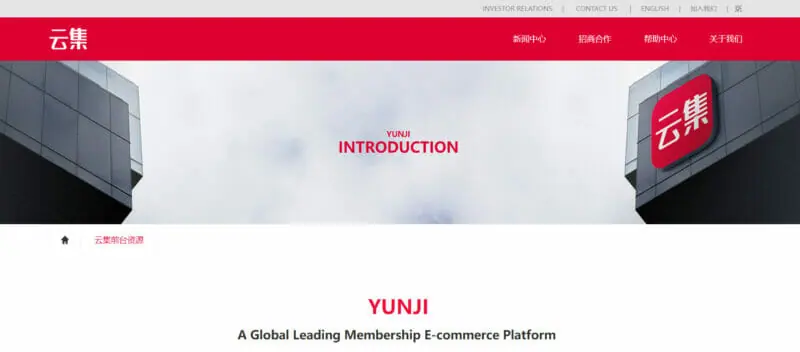
Another company to leverage WeChat and their Mini Programs is Yunji. Like Pinduoduo, Yunji was founded in 2015. More recently, however, it has taken advantage of WeChat to acquire, engage, and sell to users.
Unlike Pinduoduo, however, Yunji focuses on direct sales, which make nearly 90% of its revenues.
Yunji uses a membership-based model. People typically pay a fee to join Yunji. This gives them access to a range of benefits and discounts and permission to open their own micro-stores. Members get compensated for successfully selling to others, as well as recruiting new members.
Initially, Chinese regulators considered this model too close to a pyramid scheme and banned the company for a time. Indeed in 2017, a local government slapped Yunji with a $1.4 million fine for pyramid selling. As a result, Yunji revamped its marketing strategy. One change was to reward salespeople with virtual Yun-coins, are not redeemable for cash and only usable as coupons for future purchase.
3. Meituan
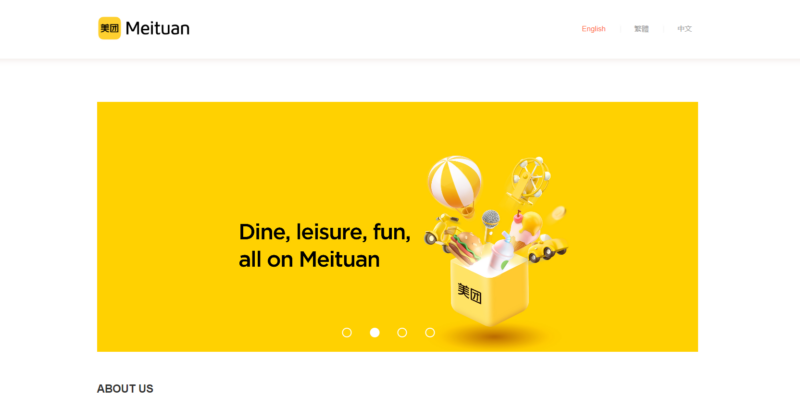
Meituan-Dianping, a Chinese food delivery giant and services platform, integrates social elements in its platform to boost user engagement for food delivery from restaurants. It features a new group buying feature that it hopes will help the company consolidate its foothold in lower-tier cities.
As with many Chinese companies, this feature utilizes a WeChat Mini Program. The company has named this app Pinhaofan. People interested in dealing with Meituan can share links with their friends and family to earn discounts through group buying.
The company offers generous subsidies to customers who use the feature and promises free delivery with no packaging fees.
Meituan is still trialing Pinhaofan, and it only has limited availability (as of July 2020, it was being trialed in Wuhu, a third-tier city in eastern China's Anhui province). It has also set some limitations at present, with customers who place orders together having to order from a limited menu at the same store. Also, each user can initiate or join up to four orders every day.
4. Alibaba
Livestreaming has been an integral activity for many Chinese millennials since 2016. Alibaba broadcast a "See Now, Buy Now" fashion show for the first time during the 2017 Singles Day. The show enabled consumers to buy the latest creations of 80 brands, including Adidas, Burberry, and Gap. Viewers could see these products on the Tmall platform in real-time.
The massive eCommerce store discovered the benefits of livestreaming as a marketing tool. They could present products in a video, answer consumers' questions in real-time, and carry out live promotional offers to encourage people to buy products.
Alibaba now operates a livestreaming platform, Taobao Live. It recorded a 110% increase in its sellers' live sessions during January 2020. Taobao opened up its digital services to a greater number of sellers during COVID19 and saw a 719% increase in the number of users who used live streaming for the first time between January and February 2020.
Alibaba is looking to encourage livestreaming in the rest of Southeast Asia via the platform Lazada.
5. Perfect Diary
Perfect Diary is already one of China's best-selling beauty brands, despite only being launched in 2016. It has proved popular on China's social platforms, including the Chinese social shopping app RED. It engages users on RED through sampling and hashtag campaigns. Perfect Diary's products rank among the top 10 in RED's semi-annual beauty awards in several categories.
The company also heavily uses WeChat. It operates a network of 500-person WeChat groups to which users are invited to join via the brand's official WeChat account. It directs users to "friend" a virtual brand-created influencer named "Little Miss Perfect" as well as another virtual mascot, "Little Miss Beautiful." Perfect Diary uses these accounts to answer questions and update group members on new products. It also shares links to campaigns, including livestreams, giveaways, and Mini Programs.
They were the first to use a new live streaming feature launched by WeChat during the lockdown. WeChat figures suggest the number of its visitors increased ten times, and the conversion rate was three times higher than on other platforms.
Thanks to WeChat, Perfect Diary became China's third-largest cosmetics brand in just three years.
6. Avon
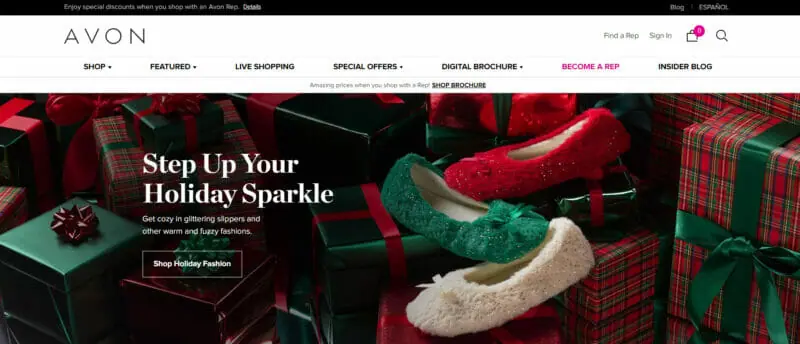
Avon is probably best known for its door-to-door marketing. However, new owner, Natura & Co, have done their best to drag it into the 21st Century.
Avon began back in 1886, however by 2018, it was struggling to modernize from its traditional model. They appointed VaynerMedia London to create marketing tools that would inspire Avon's 5 million beauty advisors to become the "authentic voice of the brand." Their initial focus was on the British and South African markets.
They focused on using a variety of social channels to find new sellers of Avon beauty products. Indeed, in the UK, the number of people willing to sell Avon beauty products doubled during the lockdown months of March, April, and May 2020, compared to the comparable 2019 months.
One way they did this was the extensive use of chatbots to encourage customer engagement. They used a special plugin and camera filters to help potential customers test lipstick shades before buying them.
7. New Balance

New Balance recognizes that 85% of social media orders come from Facebook. So it has placed much emphasis on selling and marketing via that social platform. They use the Facebook Store extensively. The Store application allows you to create a store in a few clicks on Facebook.
When you go to the New Balance Facebook page, the first thing you notice is a big button at the top right saying, "Shop Now." Also (on the desktop version at least), New Balance's Messenger chatbot opens, ready for you to start a conversation with them.
As you go down each post, you will notice a gray "Shop Now" button on each post, once again allowing you to buy the relevant pair of shoes the post promotes.
8. FlyAway BlueJay
FlyAway BlueJay has learned the value of using Buyable Pins on Pinterest to acquire new customers. FlyAway BlueJay sells curated handmade pieces from small artisans. They made a conscious decision to try and increase mobile sales and decided that Buyable Pins would help them reach new customers, drive leads, and hit their sales goals.
Although personal beauty products and jewelry have traditionally been FlyAway BlueJay's biggest sellers, the Buyable Pins have expanded their sales in many other categories as well.
One notable statistic is that 100% of Buyable Pins sales are to new customers. Also, the Buyable Pin sales account for 20% of their overall sales and 28% of their website traffic during holidays. In fact, the company receives more orders from Buyable Pins than from any other traffic source.
Frequently Asked Questions
What is social commerce platform?
Social commerce is the concept of selling products and services across social media platforms. Social commerce provides a ready-made audience for brands wanting consistent audience growth. The entire shopping experience, from product discovery to the check-out process, happens on social media.
What are the best platforms for social commerce?
These are the top 10 best platforms for social commerce:
- Snapchat
- TikTok
- Verint
- Taggbox Commerce
- Pinduoduo
- Beidian
What is an example of social e commerce?
An example of social commerce includes user recommendations, customer ratings and reviews, social shopping experience tools, social apps, marketing, and social media optimization.
What is a commerce platform?
A commerce platform is a platform that allows transactions to take place. The platform lets you overlay technology to integrate online and in-store. With social commerce, the entire shopping experience, from product discovery to the check-out process, happens on social media.
Is Facebook an ecommerce platform?
Facebook is one of the largest ecommerce platforms. With Facebook Shops, merchants can create a customizable store from which consumers can shop within Facebook and Instagram. Facebook Shops have dedicated places on the platform for consumers to browse and make purchases in addition to messages with the client.




















